In co-operation with
German Historical Institute Washington (GHI)
This public panel discussion is part of the symposium "Universities and the Public Good: Research, Education, and Democracy since 1945".
On 10 September 2025, experts gathered at Herrenhausen Palace to take part in a symposium on the topic of why authoritarian regimes routinely attack educational institutions, what this says about the value of these institutions to open societies, and how universities can return to their core mission.
Dr. Henrike Hartmann, Head of Funding and member of the Executive Board of the Volkswagen Foundation welcomed the participants and said how pleased she was to see so many young students in the audience. She then opened the discussion by saying: "Universities are places of free thought and critical thinking. And they are of vital importance for democracy. We need such places for argumentative academic debate".
"Attacks on democracy by autocratic and right-wing populist governments include attacks on universities," said moderator Johannes Völz at the start of the panel discussion. This part of the three-day symposium "Universities and the Public Good: Research, Education and Democracy since 1945" was open to the public. The symposium was organised by the German Historical Institute (GHI) in Washington and sponsored by the Volkswagen Foundation. The professor of American Studies at Goethe University Frankfurt emphasised that we are currently witnessing such attacks in the USA, but also in the heart of the EU.
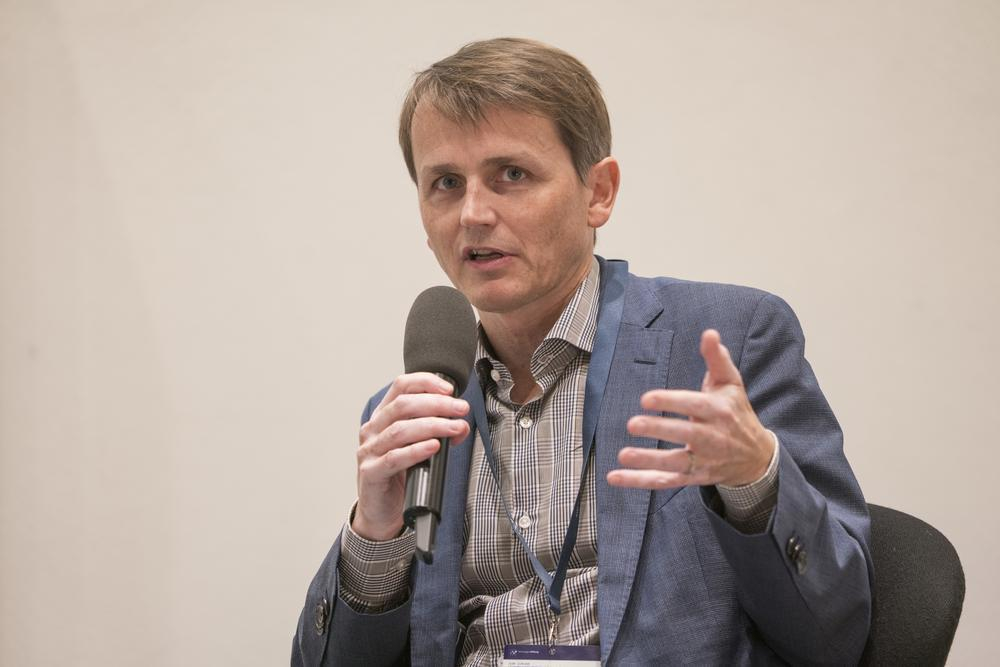
Prof. Dr. Johannes Völz, Goethe University Frankfurt, moderated the panel discussion.
For example, at the Central European University (CEU). It was founded in 1991 by George Soros based on the concept of "open society" modelled by Karl Popper. In 2017, Victor Orban forced most CEU activities to relocate from Hungary. Völz: "Autocrats clearly assume a close connection between thriving universities and a flourishing, healthy democracy." We have to ask ourselves whether autocrats perceive something here that we have yet to realise? And to what extent is the crisis of confidence in universities been caused by the universities themselves?
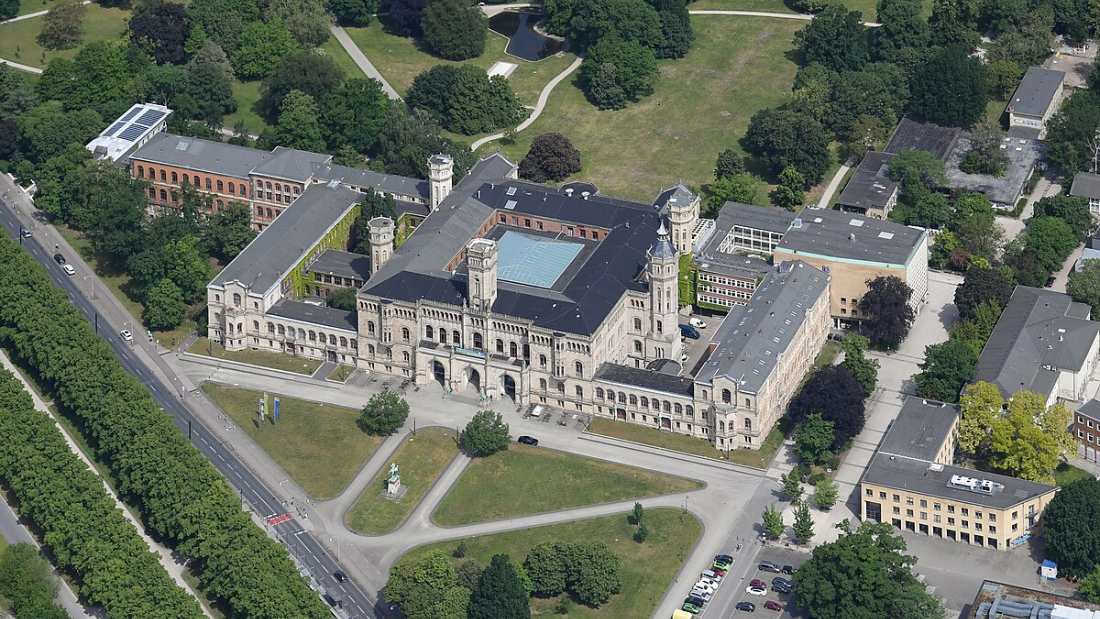
Video recording of the event on 10 September 2025.
This particular finding was rejected by Ian McNeely, professor of history at the University of North Carolina at Chapel Hill, who in his role as Senior Associate Dean for Undergraduate Education is also very familiar with the administrative situation: "There is no crisis of confidence in American universities," McNeely said. This is evident from the high number of applications. He left no room for misunderstanding in his political assessment, bluntly describing the Trump administration's attack as something between a tornado and a hurricane.
Shalini Randeria has personal experience of the situation in Hungary. The sociologist and anthropologist was rector and president of the Central European University until mid-2025. She describes states such as Hungary under Viktor Orbán as "softly authoritarian." Instead of tanks, the regime uses its parliamentary majorities and the courts to create "deliberate legal uncertainty." Shalini Randeria pointed out that autocrats like Orbán are not interested in destroying universities, but rather in turning them into centres of indoctrination. She quotes US Vice President JD Vance, who said that Orbán provided the toolbox and script for dealing with universities. Randeria is therefore cautious about the hope among US universities that they will be able to fend off Trump's attacks purely through legal means.
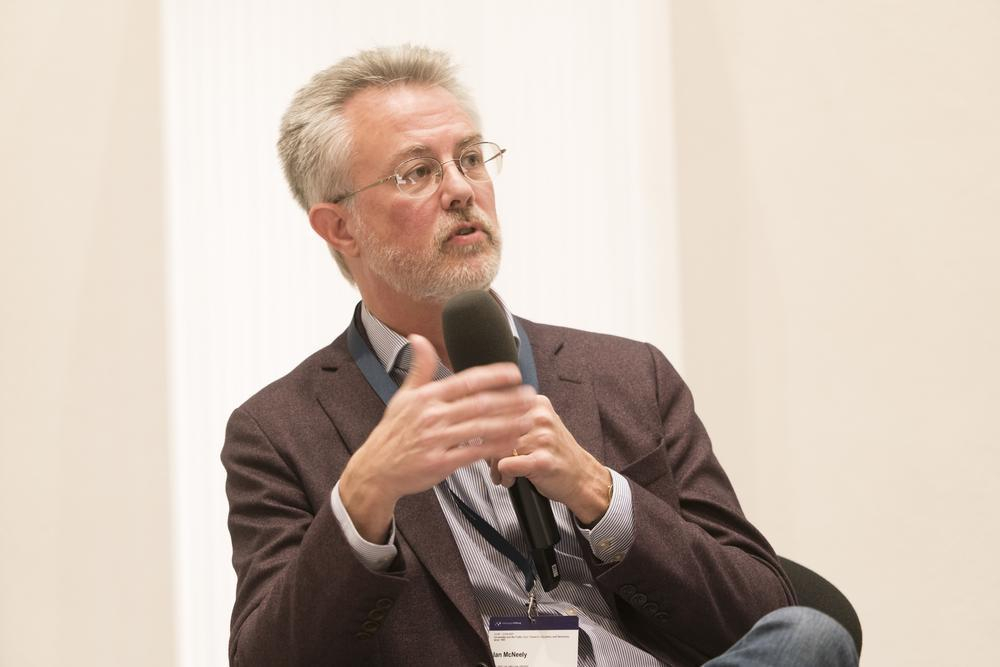
Ian McNeely does not see a crisis of confidence in American universities.
Till van Rahden highlighted the differences between the situations in Germany, Hungary, and the US. The historian is a specialist in German and European democratic history. He is currently a senior fellow at the Research College for the Humanities in Bad Homburg, which is part of the Goethe University Frankfurt.
Rahden does not currently see any threat to the freedom of science and expression at German universities, unlike the GG 5.3 Weltoffenheit initiative. "I believe that in the current situation, a very, very broad spectrum of opinion is still represented at German universities." Historian Rahden recalled that universities have not always been liberal institutions that stand up for democracy. During the Weimar Republic, universities were "breeding grounds for ethnic nationalism" – Theodor Lessing was first expelled from the lecture halls of the Technical University of Hanover by ethnic nationalist students.
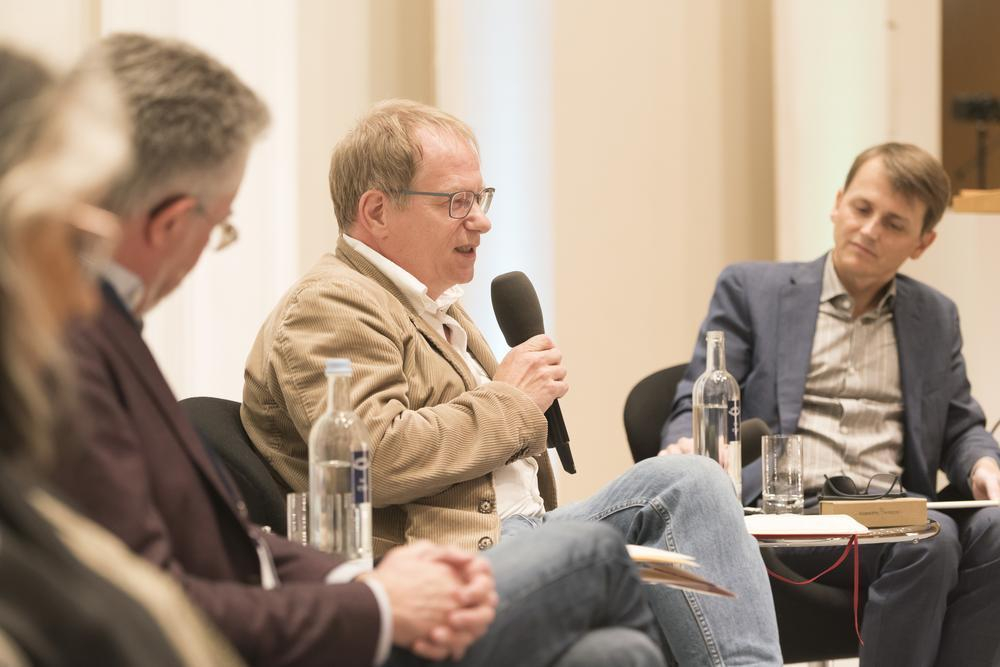
Till van Rahden (centre) does not believe that freedom of science and opinion at German universities is in danger.
Ian McNeely brought an interesting statistic into the discussion. In the United States, people with university degrees live eight years longer. The university has become a kind of "substitute welfare state," with advancement through university education in place of benefits such as universal health insurance or social security. "People have every right to complain about this – but universities are not to blame and should not have to pay the price," says McNeely.
Shalini Randeria emphasised the significance of universities as "important vehicles for social mobility". Randeria: "And that's a good thing!" Studying law or business for a few years in order to get a better job later on is a thoroughly legitimate goal. The only question is what universities have to offer beyond better career opportunities. One aspect was particularly important to Randeria: "We tend to forget that the majority of our students will not become academics." Universities therefore have the opportunity to equip many people who will not go on to work in academia with critical thinking and self-reflection skills. And the question is: what values does a university impart?
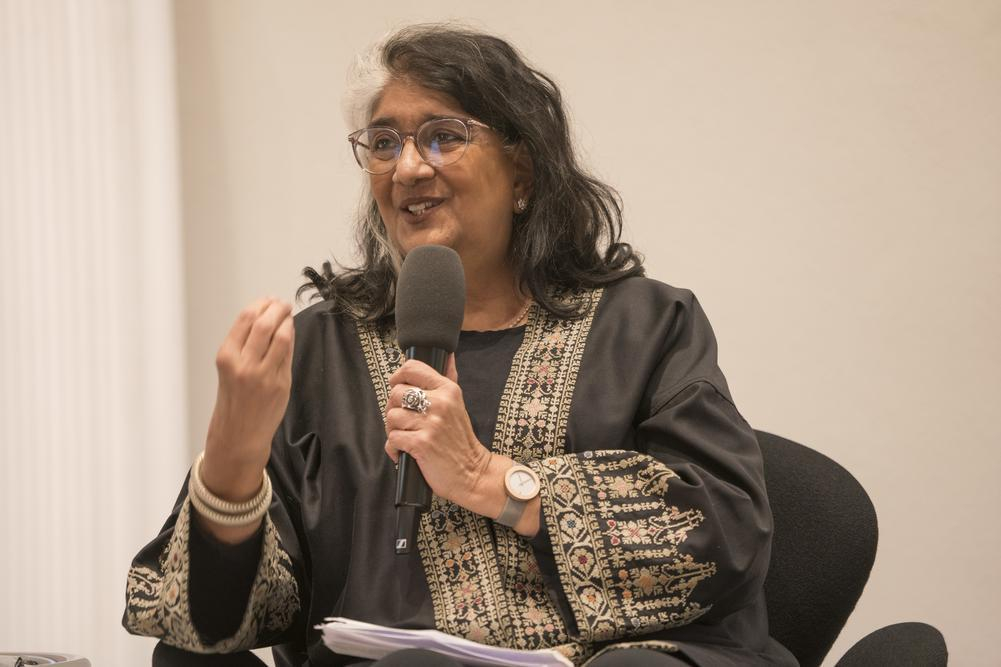
Shalini Randeria emphasised the importance of universities as "important vehicles for social mobility".
As university rector , Randeria always says in the controversial discussions surrounding Palestine: "A university stands for inclusion, it stands for diversity, it stands for plurality, it stands for tolerance. And that means it stands for certain values. And that has nothing to do with neutrality."
Why is a discussion about saving democracy necessary? Till von Rahden explained that scientific, political, cultural, and social elites have long assumed that democracy, the rule of law and free and fair elections are a kind of perpetuum mobile. "Once established, it runs and runs like a VW Beetle. We now realise that this was a big mistake."
The historian recalled the former president of the University of Chicago, Robert Hutchins. Referring to the collapse of democracies in Europe in the 1920s and 30s, he said that the most important thing about a university was not research or teaching, but reflection. Universities could once again be places that shape democratic culture and virtues out of living intellectual traditions, unlike what is often practised today.
The role of universities also raises the question of their funding. With regard to the US, Ian McNeely refuted the preconception that the humanities do not generate income for universities and that the natural sciences are more important economically, with groundbreaking research that can be used in patents and spin-offs. The opposite is true in the US. Humanities courses often have large numbers of students – and low equipment costs, which means that there is more tuition revenue per course. McNeely: "In addition to the actual reasons for promoting the humanities and social sciences, namely that they provide a forum for debates on values, there is also the economic argument that they help universities stay in the black."
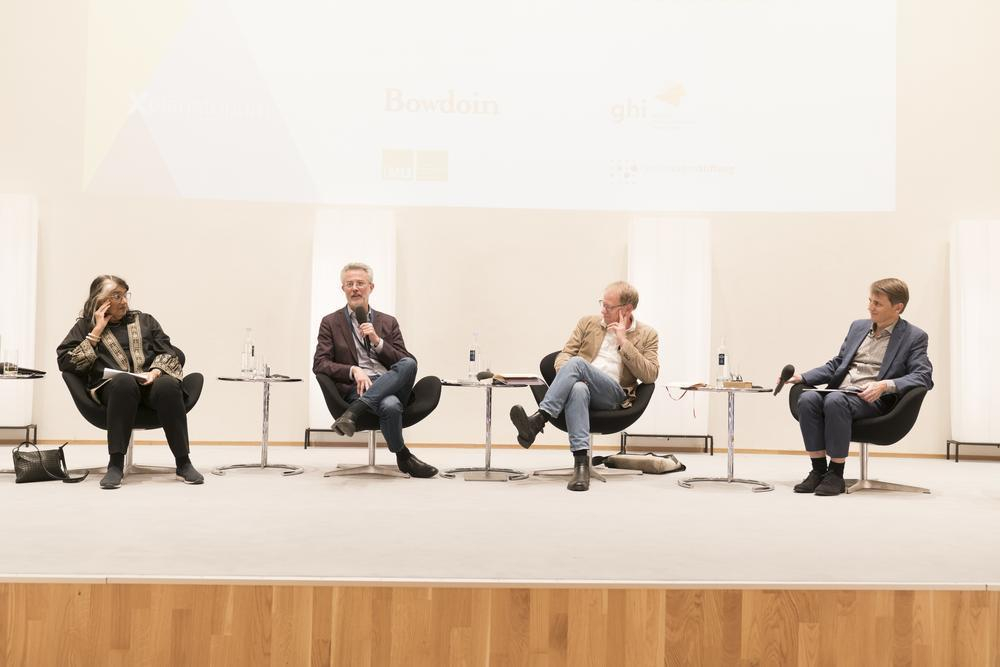
On the podium (from left to right):
Prof. Dr. Shalini Randeria, Central European University, Prof. Dr. Ian McNeely, University of North Carolina at Chapel Hill, Prof. Dr. Till van Rahden, Bad Homburg, Prof. Dr. Johannes Völz, Goethe-University Frankfurt.
In this context, Till von Rahden criticised the downward spiral of university funding by the federal states. This has sparked competition for third-party funding. "This puts pressure on universities," says Rahden. As a result, they are no longer able to fulfil their role as places where democratic ways of life, virtues and democratic attitudes can be practised. The fact that today the majority of researchers find themselves in precarious employment aggravates the situation.
Shalini Randeria pointed to an aspect that receives little attention but is immensely important for social cohesion: the sociologist and anthropologist has observed that students are becoming increasingly unable to cope with uncertainty, especially since the Covid pandemic. "The university would be a good place to think about how we can give our students a sense of security so that they can better deal with emotional and intellectual uncertainty and ambivalence. The more we know, the more we know what we don't know. And we have to be able to live with that."
Till von Rahden quoted systems theorist Niklas Luhmann: "People who engage in science do not enter safe territory, but unsafe territory." But it is precisely in this unsafe territory fraught with uncertainty that one learns to live with ambivalence and ambiguity.
Ian McNeely concluded by urging universities to show a little humility. They should not style themselves as the place where democracy is implemented most perfectly. This only contributes to fuelling resentment – and prevents the barriers between universities and the rest of society from being broken down.
Universities and colleges play a central role in diagnosing and tackling important social problems on both sides of the Atlantic. In doing so, they promote democracy by fostering unconditional and critical thinking and thus social mobility in dealing with these problems. In addition, the development of innovative technologies based on scientific insights opens up new possibilities for tackling the challenges of the present and the future. Against the backdrop of the current crisis of democracy, the potential and limits of the role of universities in the stabilisation and further development of democratic societies were discussed. What problems and opportunities do universities have in fulfilling their democratic role today? How can they strengthen the cultural, social and political conditions for democracy?
German Historical Institute Washington (GHI)
This public panel discussion is part of the symposium "Universities and the Public Good: Research, Education, and Democracy since 1945".